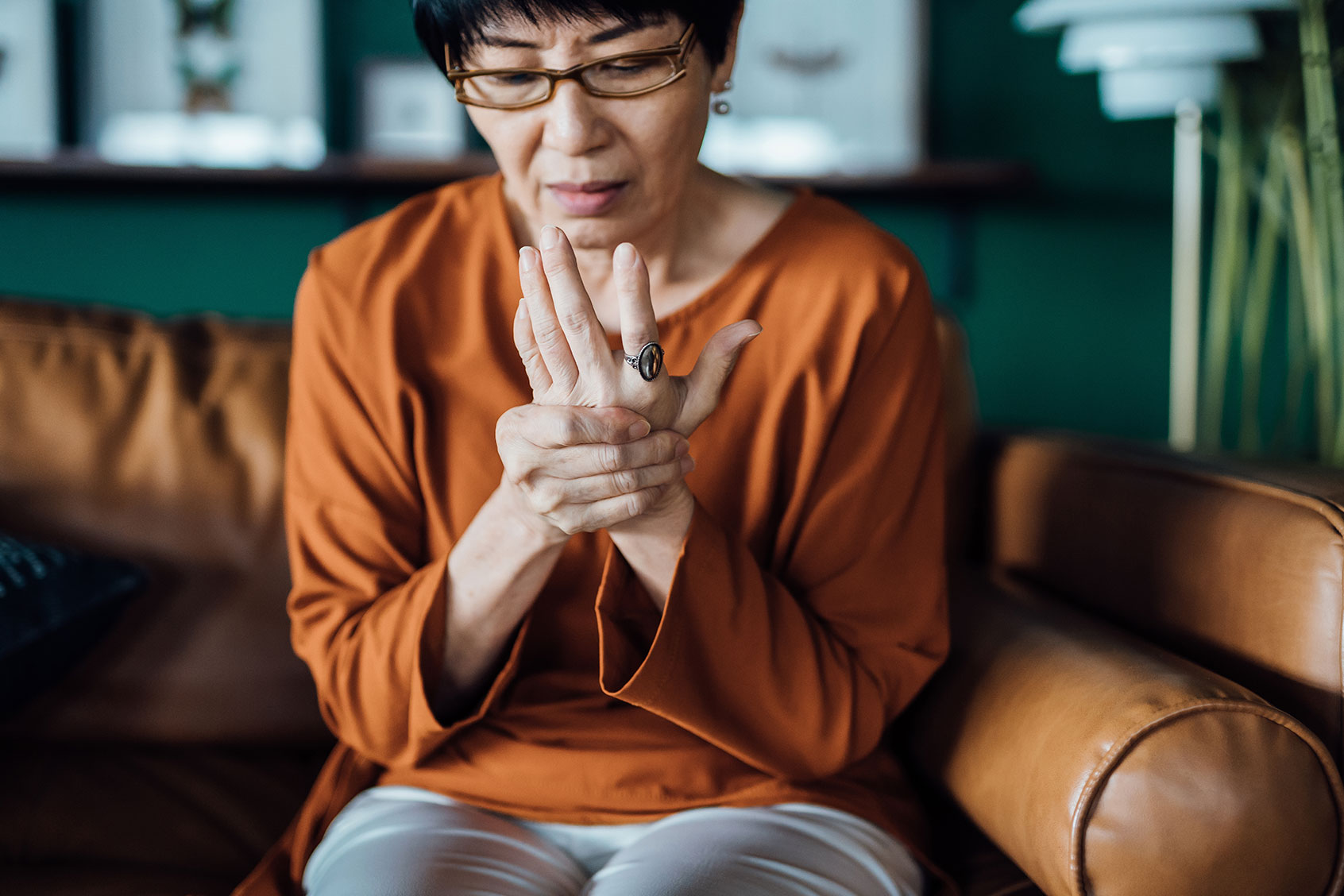Twenty years ago, seeing the letters "GF" on a menu could have been easily mistaken for “good food.” But today, it is the near-universally recognized shorthand for gluten-free. That’s in part a testament to the rapid rise in the number of people with the chronic autoimmune condition known as celiac disease, which affects as many as 2 million Americans — most of whom are women.
The reason why celiac disease has become so common is not entirely known, but it speaks to a bigger trend where autoimmune diseases are on the rise. Autoimmune diseases occur when the immune system mistakenly attacks healthy cells in a person's body. Other examples are multiple sclerosis, type 1 diabetes, asthma, eczema, lupus and rheumatoid arthritis.
In 2023, researchers published a huge study of 22 million people that estimated one in ten people have an autoimmune disorder — again, with more women being affected than men. In the U.S. alone, researchers estimate that between 24 and 50 million Americans have an autoimmune disease, and nearly 4 out of 5 of those people are women.
Why is it that females are at a greater risk of having their immune systems turn against them? A stud published this week in the journal Cell says it might boil down to the most fundamental difference between biological men and women: the difference in sex chromosomes.
“The situation is actually much more striking, some even common diseases like lupus, the ratio is nine to one, female to male.”
“The big picture of this study is to understand what autoimmune diseases collectively affect women much more so than men,” Dr. Howard Chang, a professor of dermatology and of genetics at Stanford University, who co-led the study, told Salon. “The situation is actually much more striking, some even common diseases like lupus, the ratio is nine to one, female to male.”
Typically when people think about sex differences, they think it has to do with sex hormones. Females tend to have more estrogen whereas males tend to have more testosterone. But a key finding in Chang’s research shows that hormones aren’t responsible, but instead a single, female-specific gene that plays a significant role in female bias autoimmunity.
Want more health and science stories in your inbox? Subscribe to Salon's weekly newsletter Lab Notes.
Embryos for both females and males carry 22 identical pairs of chromosomes, but the 23rd is different. For females, they have two X chromosomes; males have an X and a Y chromosome. On each chromosome there are genes that produce proteins to conduct specific functions inside of our cells. Since women have two X chromosomes, one might think that means that women have double the proteins.
But that’s not the case, as nature developed a way to neutralize those proteins. It's a good thing, too, given such an overproduction of them could be deadly. This is called “X-chromosome inactivation.” But in this study, researchers found that it’s this process that can increased susceptibility to autoimmune disorders thanks to a gene called Xist, which is responsible for silencing the proteins on the extra X chromosome.
"That just highlights the fact that autoimmunity is multifactorial, there's not a single cause or only a single way to get there.”
As the Xist does its job, researchers found that in some cases it can trigger a strong immune response and that many of its co-conspirator proteins have been associated with autoimmune disorders.
“The thinking is that if this experiment were successful, this would mean that you don't have to have different sex hormones, you don't even have to have a whole second extra X chromosome — just this RNA being enough to confer the increased autoimmune risk,” he said. “And that's what we found.”
Indeed, the researchers placed Xist genes on two different strains of male lab mice – one that is susceptible to lupus and one that is resistant to it. Researchers found that once the Xist gene was activated, the male mice developed lupus-like autoimmunity at a rate similar to females. But human men still get autoimmune disorders without having their chromosomes manipulated in a lab. Why?
We need your help to stay independent
“That just highlights the fact that autoimmunity is multifactorial, there's not a single cause or only a single way to get there,” Chang said. “You can still get an autoimmune disease, obviously without Xist and not all autoimmune diseases have a strong female bias.”
“You shouldn't fault women for getting sick, there is absolutely nothing we can do about it. It’s nobody’s fault,” Chang added, saying he hopes the biggest takeaway from this study is that female bias in autoimmunity disorders is a “critical feature” and science finally has an understanding as to why. That could open the door to new disease diagnoses and therapies, such as targeting B cells.
"Those are cells that make antibodies, that seem to expand in response to Xist," Chang said. "So maybe therapies targeting those B cells would be helpful. This obviously is now future research. But now we have some clues as to what might be happening."
Yet there is clearly still a lot to learn about how these conditions manifest.
"There are more than 100 known autoimmune diseases that in aggregate afflict ∼50 million Americans and comprise one of the top ten leading causes of death for women under the age of 65," Chang and his co-authors wrote. "Understanding the risk factors and drivers of autoimmunity has become even more critical in the race to develop effective therapies and sensitive diagnostics specific to each autoimmune disease."
Read more
about autoimmune disease

